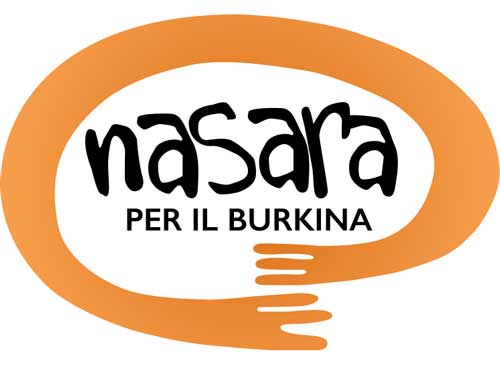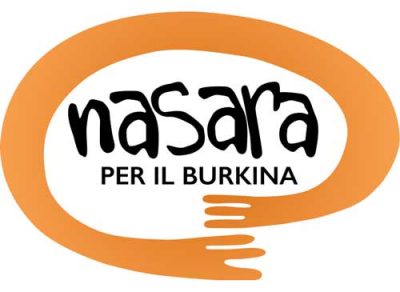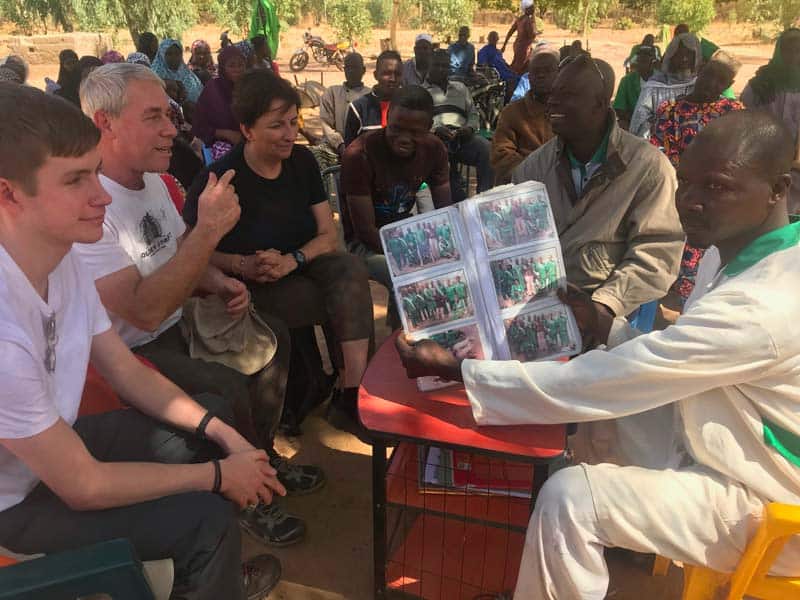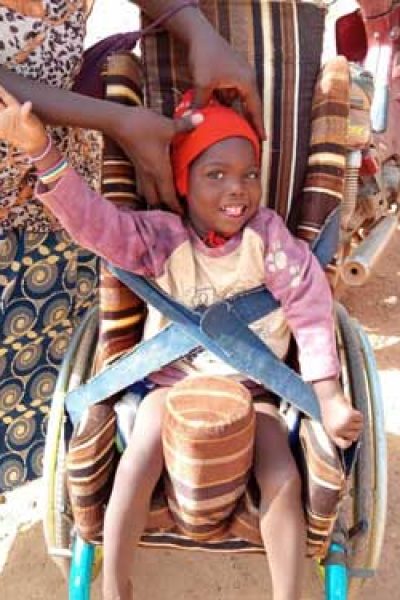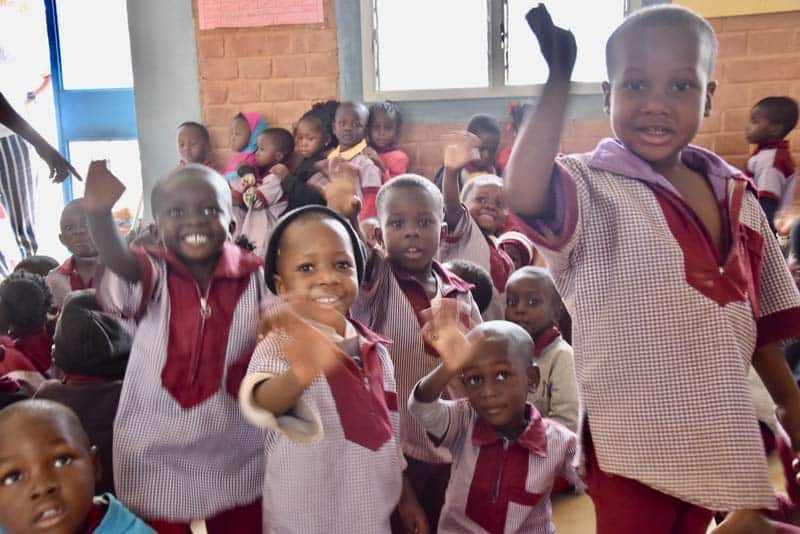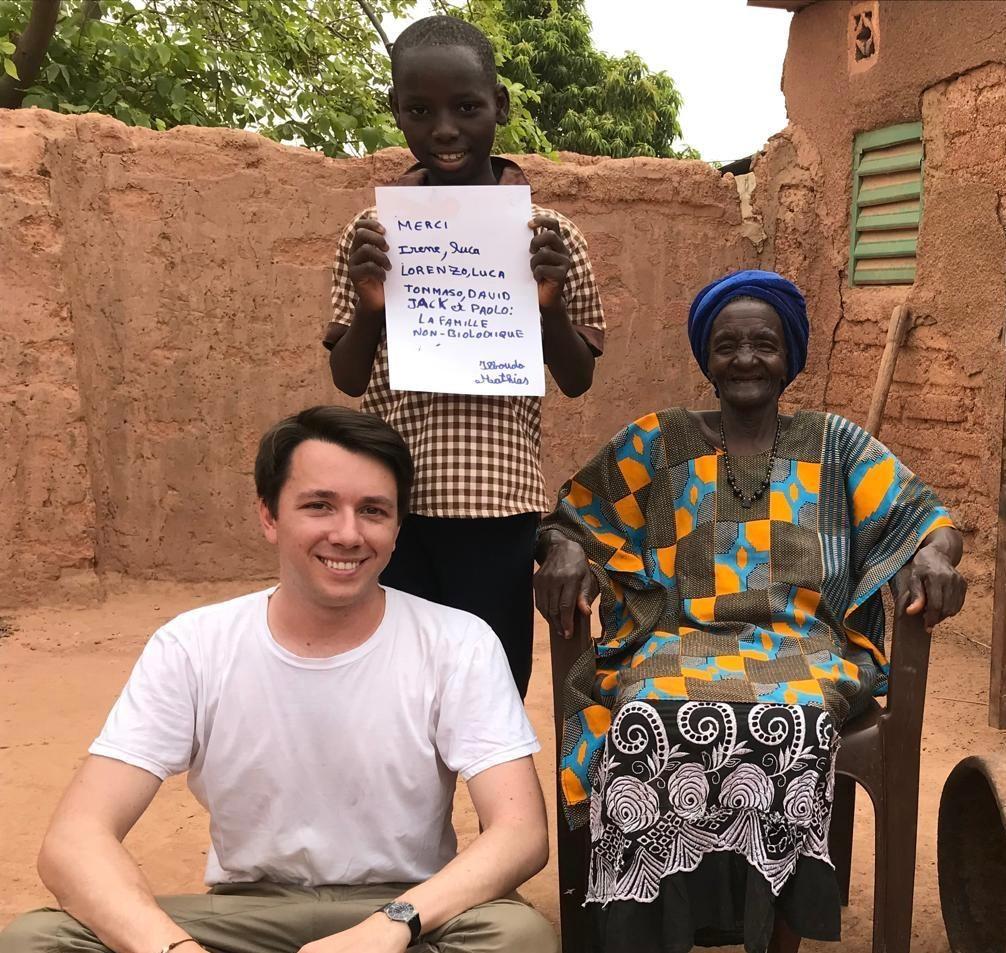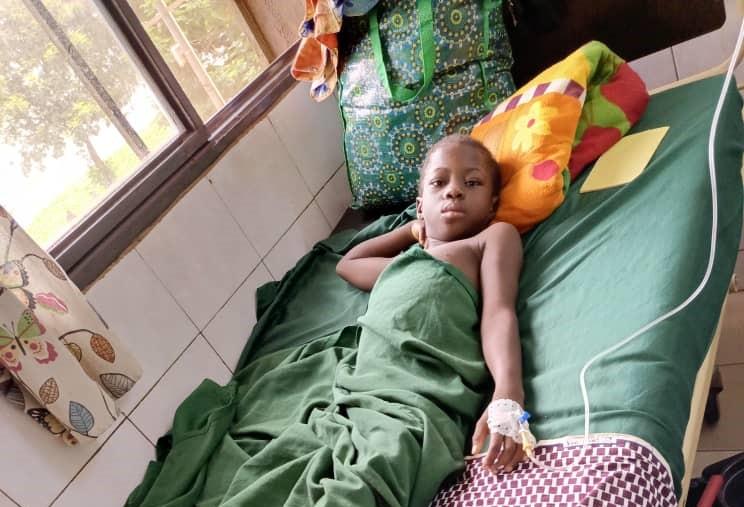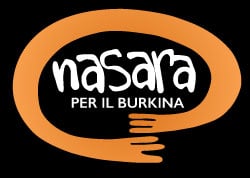Akova is the name of a Burkinabe association run by Mamadou and his wife Awa who have turned their house into a family home where children go in the afternoons after school.
We got to know about this facility in 2008 thanks to volunteer friends of ours who had pointed it out to us because they had been struck by the dedication that Mamadou and Awa put into this activity.
Their home is in a fairly central district of the capital Ouagadougou, and it was this that made us aware of the difficulties faced by children from poor families living in the city.
Ouagadougou is a city divided into very different areas: from Oauga 2000, where international building speculation has razed entire neighbourhoods inhabited by the poor to make way for mega-villas and Parisian-style boulevards, to decent central neighbourhoods similar to many other cities we know, to the poorest districts.
In the latter, there are no roads passable by car, but only winding alleys, there is no electricity and drinking water, sewers are a mirage, and there are often no property rights, so that if a house is expropriated to make way for a road, there is no right to compensation, as happened to a friend of ours who will have to start from scratch.
The last flood in September 2009 then gave the poor the coup de grace because many mud houses ‘melted’ under the action of the rain. Once the emergency was over, the flood gave the municipal administration the alibi to carry out real mass expropriations to free up entire central neighbourhoods to make way for new subdivisions obviously for the rich. When lucky, the expropriated got a ‘presella’ many kilometres away from their previous home and the life they had created over the years, but obviously no help to rebuild.
No wonder, nobody protects the poor here!
In this city of a thousand faces, working in deprived neighbourhoods holds many surprises in store for the great humanity and solidarity to be found among the people.
Seeing the boys loitering in the dusty streets of the neighbourhood, easy prey to bad habits, Mamadou and Awa thought of opening their very humble home to these boys. Three rooms plus a large tin roof and a small courtyard are always teeming with boys.
They started with a bit of after-school and television, then moved on to some meals.
Now, after years, they have become our friends and we spend part of our missions sharing new projects and ideas with them.
The first few years we supported the running costs financially, then we dedicated ourselves to the construction of the concrete floor that prevents the boys from breathing dust, and this year we contributed to the replacement of the sheet metal roof that becomes a real oven when the sun beats down.
During the 2010-2011 school year, Akova twinned with a class from an Italian school, you can see a video here.
After months of feverish preparation, aided by a group of Italian volunteers who also stayed in Burkina for two months, Akova participated in the Inter-African Theatre Festival in February 2010 as the only theatre company made up entirely of young people. With a beautiful show full of colour, rhythm, and joy, the boys achieved great success with both the public and the critics. For this event, Nasara for Burkina financed transport to and from the areas where the performances were held and most of the musical instruments.
Currently, acting, dance and percussion classes are held on a permanent basis.
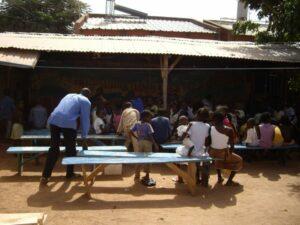
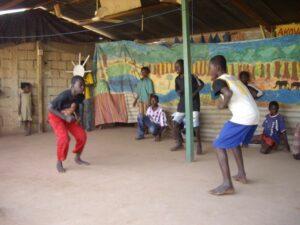
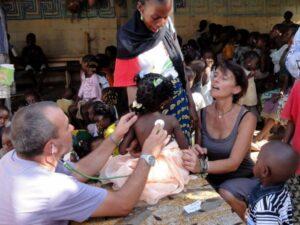
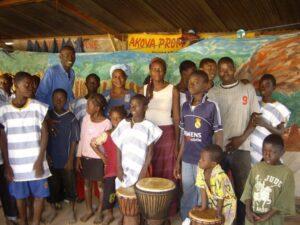
Taking advantage of the presence of two medical volunteers, during the November 2010 mission, we organised medical examination sessions for the children of Akova. The initiative started by chance, but was immediately a success because, by the second day that word had spread in the neighbourhood, there were dozens and dozens of visits. The boys were accompanied by their mothers who knew about the illnesses but had no money to take the boys to the doctor, let alone buy medicine. In fact, in Burkina Faso, every medical service is paid for and hardly anyone spends the little money on visits for illnesses that are not very serious. We have seen normal coughs or pneumonia, ear infections that often degenerate into eardrum bursting due to lack of treatment, as well as simple cases of poor personal hygiene that create a thousand accessory problems. We distributed a large number of antibiotics and cough syrups that we had brought on the plane, as well as having glasses made at our own expense or having specific analyses done.
The most serious and difficult cases to treat in this very unusual setting were referred by us to the specific departments of St. Camillus Hospital.
This activity with Akova will continue in the coming years to improve the reception centre and to create the basis for some kind of economic livelihood.
